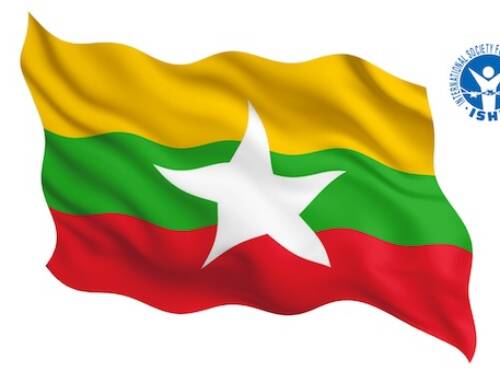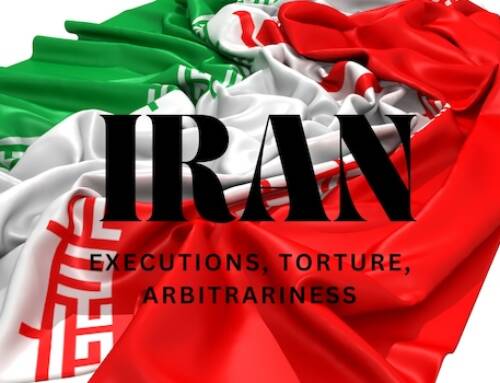Ethiopia

Rape as Weapon of War in Tigray, Ethiopia

Genocidal Rape
Report from Saba Mah’derom, Women of Tigray, November 09, 2022:
On 4 November 2020, a military confrontation ignited between the Ethiopian government and its Eritrean allies and regional forces in Tigray. From the onset, the war was characterized by indiscriminate and wholesale attacks against the civilian population. The roster of brutalities is lengthy: hundreds of thousands are dead, millions are displaced, and essential civilian infrastructure and services are completely dismantled.
Due to the total telecommunications and internet blockade imposed on Tigray by the Ethiopian federal government, these reports have come out through the efforts of humanitarian workers, journalists, and civilians at great personal risk suggesting that the atrocities recorded could only be the tip of the iceberg. Despite measures to conceal the reality through communication blackouts and other means, various human rights, humanitarian and investigative reports confirm that atrocities committed by the Ethiopian and allied forces amount to war crimes, crimes against humanity, and acts of genocide. Until the communications black-out is lifted, a true understanding of the scale of atrocities that lie buried beneath the shutdown remains beyond reach.
One of the most gruesome and defining features of the war has been the extensive weaponization of rape and sexual violence consistent with the well-established definitions of genocidal rape. The most conservative estimates using the Minimum Initial Service Package (MISP) for Sexual and Reproductive Health (SRH) commonly used by the United Nations Population Fund (UNFPA) indicate that more than 26,000 women and girls were expected to seek clinical care for sexual violence in Tigray in 2021. It is important to note that while this calculator is very efficient for planning when it is used for natural and other emergencies it does not take into account situations in which sexual violence is deliberately used to terrorize, dehumanize and devastate communities, as happened in Tigray. Many were deliberately infected with STDs including HIV. Others have fallen pregnant and since-born children without pre or post-natal care.
Survivors of these heinous crimes were often threatened by the perpetrators against seeking care and health providers were intimidated to discourage them from providing services. Moreover, due to the systemic crippling of Tigray’s healthcare system and the ongoing humanitarian blockade imposed on Tigray by the Ethiopian government, Tigrayan survivors of sexual violence have not received any post-rape medical or mental health survivors. The Global Health Resources and Service Availability Monitoring System (HeRAMS) estimates that only 2% of the health facilities in Tigray are able to provide Clinical Management of Rape Services due to the ongoing siege imposed by the Ethiopian government.
In addition, the humanitarian blockade and the extensive dismantling of the region’s economy and food system have meant that millions of Tigrayans, including survivors of sexual violence, have been forced into famine. Overwhelming evidence has been found documenting the government’s intention to deprive the population of all means that are indispensable for survival. Among the acts include deliberate violations that have been used to engineer famine. These acts that are in breach of the local constitution, international law, and humanitarian law are ongoing. This double victimization of the women and girls of Tigray has unfortunately been, minimized, and concealed by different bodies including UN officials. State media and government officials have also deployed sophisticated campaigns to undermine the lived experiences of survivors.
On the 2nd of November 2022, there was a major breakthrough in the collective efforts to end the war. A cessation of hostilities agreement was signed by the Tigray People’s Liberation Front and the Ethiopian federal government. While this is a very encouraging development credible concerns have been raised about aspects of the published agreement such as how to ensure the verifiable withdrawal of Eritrean forces from Tigray and instituting an independent and effective mechanism of monitoring the implementation of the Cessation of Hostilities. Significantly the Agreement also fails to offer reliable means of justice for victims of atrocities including survivors of CRSV.
While those areas are critical, as Women of Tigray, we also would like to reiterate the importance of centering the women and children in the negotiations and agreements. Particularly, we believe the Women of Tigray wish to particularly highlight the following elements:
- The need for all parties to the conflict to urgently and unconditionally prioritize and de-politicize humanitarian aid. At the time of writing, it has been a week since the agreement was signed and aid trucks remain stranded in the neighboring region Afar awaiting clearance which the Ethiopian government stopped providing on August 23, 2022.
- There is a critical need to ensure that commendable efforts toward peace do not neglect independent investigation, accountability, and non-repetition of the atrocities that have been committed over the past two years.
- Finally, we call upon parties to the peace process to give a voice to the girls and women of Tigray whose bodies have been a battleground in the last two years of war.
Women of Tigray asks all human rights bodies and women’s organizations to amplify these calls in solidarity with the girls and women of Tigray.





